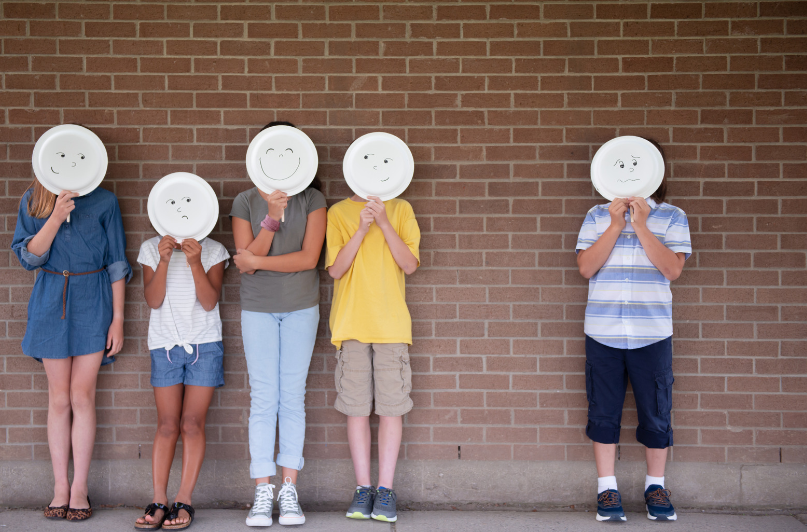Improve our social life; “Put yourself out there. The more you interact with others, the easier it will become, and the more opportunities you’ll have to make new friends and build relationships.”
Social connections are important for good physical and mental health.
When depressed, it can be hard to socialize, but social connections can help fight depression. Researchers have found that people with strong social connections have lower rates of depression.
Social connectedness can generate a positive feedback loop of well-being.
Even when feeling down, talking to people can help us feel more connected and start to improve our mood.
In this article, we guide you to a happier, improved social life.
Understanding the Importance of Social Connections

Let’s understand why it’s crucial to learn how to improve our social life. Social connections are essential for our overall well-being.
Studies have shown that people with strong social connections are happier, healthier, and live longer than those who are isolated.
Build strong connections with others by being genuine, interested, and supportive.
For example, a study published in the journal PLoS Medicine found that people with strong social ties had a 50% lower risk of death than those with weak social ties.
Develop your social skills by practicing active listening, asking open-ended questions, and being mindful of your nonverbal communication.
Another study published in the journal Psychological Science found that people who felt more connected to others had lower levels of stress and inflammation.
The Benefits of Improving Your Social Life

Expand your social circles by joining clubs or groups, volunteering, and attending social events. Improving your social life has many benefits, including:
- Increased happiness and well-being: A study published in the journal Social Psychological and Personality Science found that people who had more social interactions were happier and more satisfied with their lives.
- Reduced stress and anxiety: A study published in the journal Health Psychology found that social support can help to reduce stress and anxiety levels.
- Improved physical and mental health: A study published in the journal Heart found that people with strong social ties had a lower risk of developing heart disease. Another study published in the journal American Journal of Epidemiology found that people with strong social connections had a lower risk of developing depression.
- Increased lifespan: A study published in the journal Proceedings of the National Academy of Sciences found that people with strong social ties lived longer than those with weak social ties.
Effective Communication for Social Success

Effective communication is essential for building and maintaining strong social relationships. When you communicate effectively, you’re able to share your thoughts and feelings in a way that is clear, concise, and respectful. You’re also able to listen to others attentively and understand their perspectives.
Strengthen your existing relationships by making time for the people you care about, being honest and open, and offering support and encouragement.
Tips for effective communication
- Be clear and concise in your communication. Avoid using jargon or slang that your audience may not understand.
- Be respectful of others’ opinions, even if you disagree with them.
- Be a good listener. Pay attention to what others are saying and avoid interrupting them.
- Ask clarifying questions to make sure you understand what the other person is saying.
- Be honest and authentic in your communication.
Social Improvement: Contribute to your community and make a difference in the world by volunteering your time or skills.
How to Improve Your Social Life: Step-by-Step Guide
Here is a step-by-step guide on how to improve your social life:
- Identify your goals. What do you hope to achieve by improving your social life? Do you want to make more friends, expand your social circle, or build stronger relationships with your existing friends and family?
- Put yourself out there. The more people you meet, the more likely you are to find people you connect with. Attend social events, join clubs or groups, and volunteer your time.
- Be interested in others. Ask people questions about themselves and listen attentively to their answers. Show that you care about what they have to say.
- Be yourself. People can spot a fake from a mile away. Be genuine and authentic in your interactions with others.
- Make an effort. Social relationships take time and effort to build and maintain. Be willing to put in the work to nurture your relationships.
Here are some additional tips:
- Use social media wisely. Social media can be a great way to connect with friends and family, but it’s important to use it in moderation. Don’t let social media replace face-to-face interaction.
- Be mindful of your body language. Make eye contact, smile, and stand up straight when you’re talking to people. Open body language shows that you’re interested in what they have to say.
- Be positive and upbeat. People are drawn to those who have a positive attitude. Focus on the good things in your life and avoid complaining.
- Be supportive and helpful. Be there for your friends and family when they need you. Offer your help and support without being asked.
- Nurture your friendships by being there for your friends, celebrating their successes, and offering support during difficult times.
Conclusion
The journey to improve your social life can take time and effort, but it’s worth it. Strong social connections are essential for our overall well-being.
By following the tips above, you can start building and maintaining strong social relationships that will enrich your life.
If you are struggling to improve your social life, it may be helpful to talk to a therapist or counselor. They can help you to identify the challenges you are facing and develop strategies for overcoming them.
Key takeaway:
- Engagement Strategies: Engage with others in meaningful ways by being present, listening actively, and sharing your thoughts and feelings openly.
- Effective Communication: Communicate effectively by being clear, concise, and respectful. Listen actively to others and be open to feedback.
- Social Confidence: Boost your social confidence by practicing your social skills, setting realistic goals, and celebrating your successes.
- Activities: Participate in social activities that you enjoy and that allow you to meet new people.
- Networking: Network with others to build relationships and expand your social circles.
FAQs
Here are some habits to help you become more social:
Make an effort to talk to new people every day.
Attend social events and gatherings.
Join clubs or groups that interest you.
Volunteer your time to a cause you care about.
It is possible to have a social life and work full-time. Here are some tips:
Be intentional about scheduling time for social activities.
Set realistic expectations for yourself. You don’t have to attend every social event.
Be selective about the social commitments you take on.
There are many benefits to improving your social life, including:
Increased happiness and well-being
Reduced stress and anxiety
Improved physical and mental health
Increased lifespan
There is no one-size-fits-all answer to this question. The number of social events you need to have a “good” social life will depend on your individual needs and preferences.
It is okay to have no friends. However, it is important to have social connections of some kind. Social connections can help to reduce stress, improve your mood, and boost your overall well-being.

